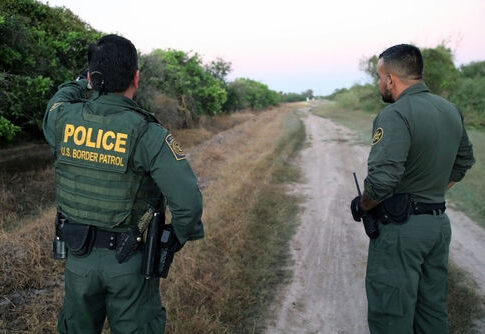President Trump’s crackdown on illegal immigration has triggered a sweeping transformation of border policy, sparking fierce debate over constitutional rights and the future of American sovereignty.
Trump Administration’s Immediate Immigration Actions Reshape Policy
On his first day back in office in January 2025, President Trump signed a series of executive orders declaring a national emergency at the southern border, blocking asylum seekers, ending “catch and release,” suspending nearly all refugee admissions, and moving to end birthright citizenship for children of non-residents. These actions marked the most aggressive immigration enforcement measures in modern U.S. history. The administration’s stated goal is to deter illegal entry and protect American communities, asserting that lax border policies of the previous administration had fueled a crisis.
The new policies have allowed Immigration and Customs Enforcement (ICE) to conduct raids in locations previously considered off-limits, such as schools, hospitals, and places of worship. Attorney General Pam Bondi authorized law enforcement to enter migrant homes without warrants, intensifying operations in major cities and border regions. The administration claims these unprecedented steps have led to a dramatic decline in illegal border crossings, reaching the lowest levels in decades. While supporters applaud the decisive action as long overdue, critics argue that the broad use of executive power tests the limits of the Constitution and risks undermining civil liberties.
Mass Deportations and the Laken Riley Act: Impact and Controversy
Central to Trump’s enforcement agenda, the Laken Riley Act—signed in January 2025—mandates the detention of immigrants charged with or convicted of certain crimes. ICE, under the leadership of newly appointed “border czar” Tom Homan, launched mass-deportation operations nationwide, including in sanctuary cities. The administration claims to have deported over 200,000 migrants by early June. These efforts, often involving military aircraft and the use of detention centers, have led to the separation of families and widespread fear within immigrant communities. Legal challenges have emerged, questioning the denial of due process and the constitutionality of warrantless home entries.
Despite mounting legal challenges, the administration has pressed state and local governments to fully cooperate with federal authorities. Failure to comply risks penalties and the loss of access to federal databases, according to administration policy documents. Meanwhile, critics highlight the humanitarian consequences, as families are separated and longstanding residents face abrupt removal, sometimes with little opportunity for legal recourse.
Supporters Hail Restoration of Sovereignty and Rule of Law
Many Trump supporters and conservative lawmakers argue these actions are necessary to restore American sovereignty and defend constitutional order. By eliminating the “sensitive locations” policy and enabling ICE to operate freely, the administration contends it is closing loopholes that have been exploited for years. The Trump team has also moved to expand E-Verify, restrict humanitarian relief programs, and reduce the number of visas available to immigrants, aiming to protect American jobs and reduce taxpayer burdens. The administration’s approach has galvanized supporters who view the crackdown as a long-overdue correction after years of what they see as leftist, open-border policies that endangered national security and undermined the rule of law.
While these measures have drawn legal and political opposition, the administration remains steadfast. Officials stress that their actions are rooted in the constitutional duty to secure the nation and enforce the law. As legal battles play out and Congress debates further reforms, the future of American immigration policy remains at the forefront of the national conversation, with Trump’s supporters determined to defend the changes as vital to preserving American values and sovereignty.
Despite continued outcry and ongoing court battles, the administration shows no signs of reversing course. The coming months are likely to bring further developments as local governments, advocacy groups, and the courts respond to the sweeping changes. For Americans concerned about constitutional integrity, border security, and the preservation of national identity, the fight over immigration policy remains a defining issue of the Trump era.
Sources:
Immigration policy of the second Trump administration – Wikipedia
The Trump Administration’s 2025 Changes to Immigration Law …
Protecting The American People Against Invasion – The White House
The First 100 Days of the Second Trump Administration


